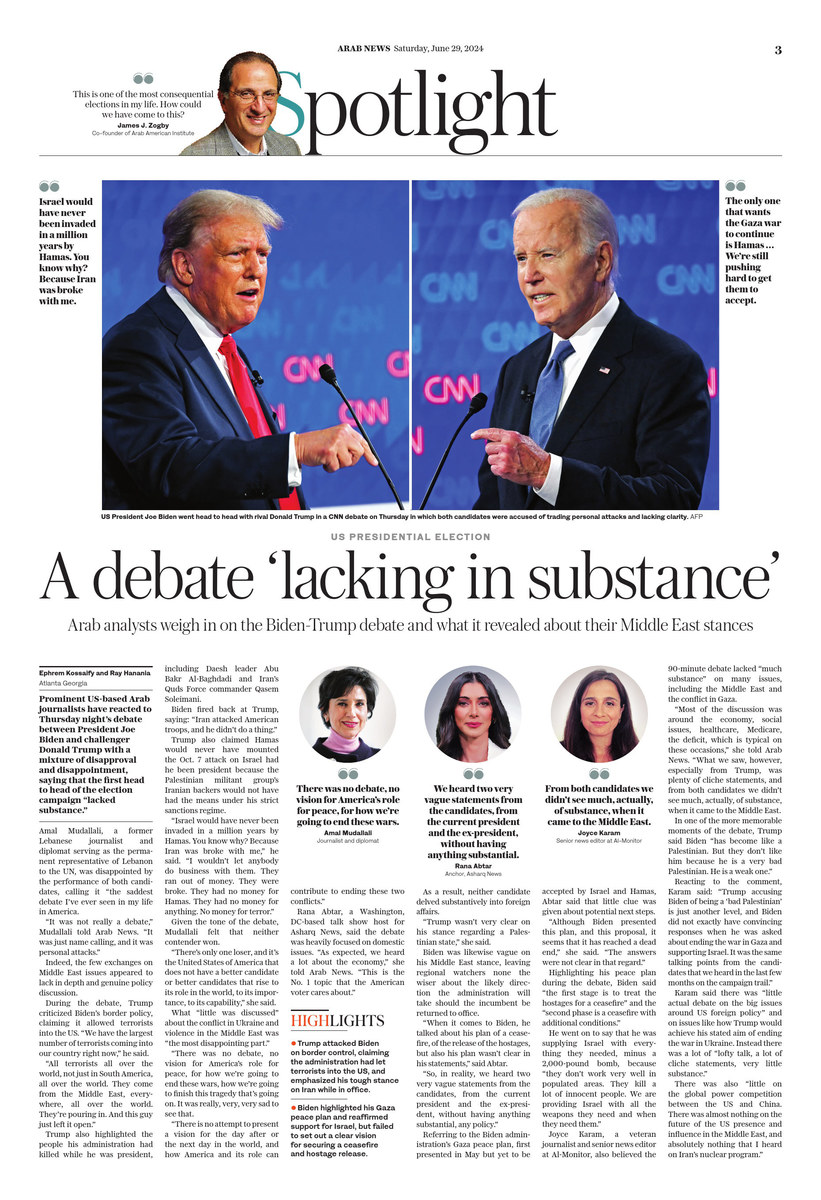ATLANTA, Georgia: Prominent US-based Arab commentators have reacted to Thursday night’s debate between President Joe Biden and challenger Donald Trump with a mixture of disapproval and disappointment, saying that the first head to head of the election campaign “lacked substance.”
Biden and Trump took part in a debate hosted by CNN at the network’s Atlanta headquarters without a studio audience present and in a format that cut microphones when candidates exceeded their speaking time or interrupted one another.
Amal Mudallali, a former Lebanese journalist and diplomat serving as the permanent representative of Lebanon to the UN, was disappointed by the performance of both candidates, calling it “the saddest debate I’ve ever seen in my life in America.
“It was not really a debate,” Mudallali told Arab News. “It was just name calling, and it was personal attacks.”
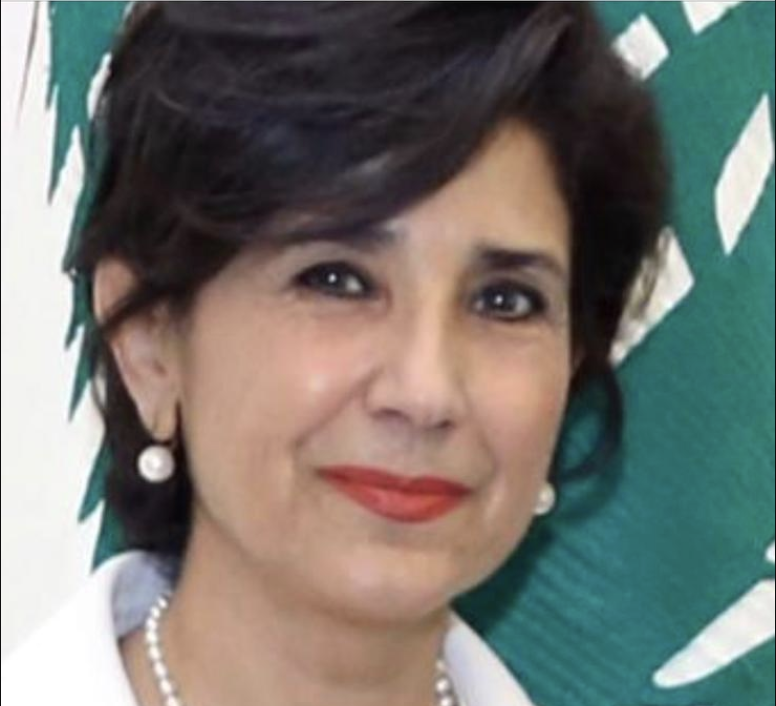
Amal Mudallali. (Supplied)
She added: “Even when you had questions about very important issues, the answers were either the candidate stumbling or the other one changing the subject or not answering the question.”
Indeed, many of the few exchanges on Middle East issues appeared to be personal attacks, lacking in depth and genuine policy discussion.
During the debate, Trump criticized Biden’s border policy, claiming it allowed terrorists into the US. “We have the largest number of terrorists coming into our country right now,” he said.
“All terrorists all over the world, not just in South America, all over the world. They come from the Middle East, everywhere, all over the world. They’re pouring in. And this guy just left it open.”
Trump also highlighted the people his administration had killed while he was president, including Daesh leader Abu Bakr Al-Baghdadi and Iran’s Quds Force commander Qasem Soleimani.
Biden fired back at Trump, saying: “Iran attacked American troops, and he didn’t do a thing.”
Trump also claimed Hamas would never have mounted the Oct. 7 attack on Israel had he been president because the Palestinian militant group’s Iranian backers would not have had the means under his strict sanctions regime.
“Israel would have never been invaded in a million years by Hamas. You know why? Because Iran was broke with me,” he said. “I wouldn’t let anybody do business with them. They ran out of money. They were broke. They had no money for Hamas. They had no money for anything. No money for terror.”
The approach to US policy on Iran does appear to be an area in which Biden and Trump differ, with the former preferring to try and contain Tehran’s nuclear ambitions through the Obama-era deal he helped broker and the latter favoring a “maximum pressure” campaign.
“The point of greatest difference between a President Trump versus a President Biden is certainly Iran,” Firas Maksad, a senior fellow at the Middle East Institute, told Arab News.
“One favors more pressure and containment, while the other prefers diplomacy and attempting to accommodate Tehran’s regional ambitions.”
Given the tone of the debate, Mudallali felt that neither contender won.
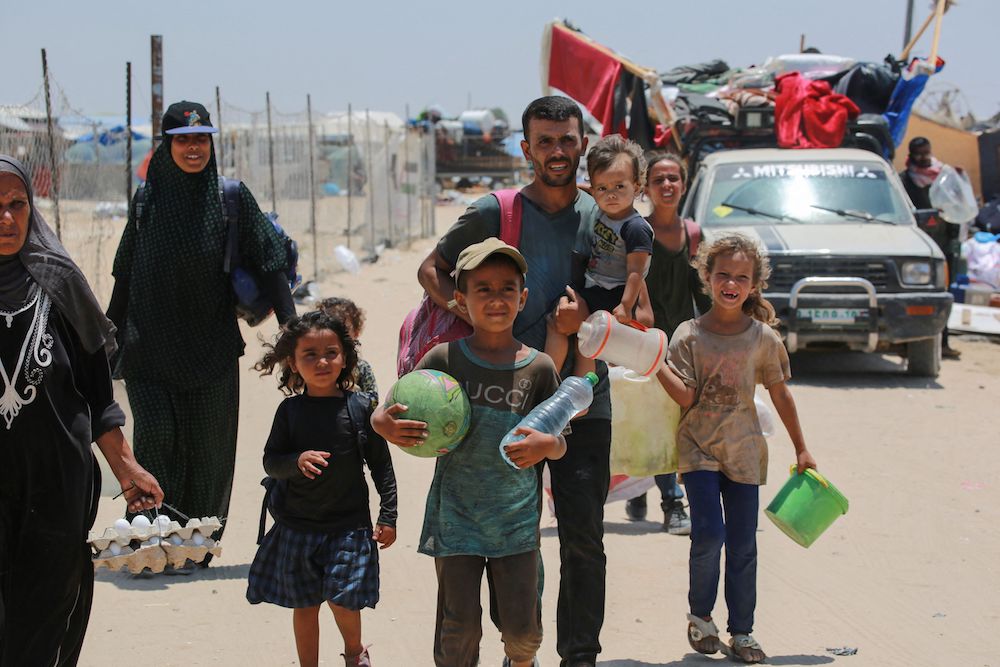
Displaced Palestinians evacuate the Mawassi area in southwest Khan Yunis in the southern Gaza Strip on June 28, 2024, amid the ongoing conflict between Israel and Hamas. (AFP)
“There is no winner in this debate,” she said. “There’s only one loser, and it’s the United States of America that does not have a better candidate or better candidates that rise to its role in the world, to its importance, to its capability.”
Mudallali said that what “little was discussed” about the conflict in Ukraine and violence in the Middle East, including the war in Gaza and the armed exchanges between Israel and Hezbollah along the Lebanese border, was “the most disappointing part” of the debate.
“At a time when you have two major conflicts in the world, in Europe and in the Middle East, where you have thousands of people dying in Gaza, 37,000, and thousands and thousands of people in Ukraine, you see that a foreign policy debate in this debate was shallow. It was nonexistent,” she said.
“There was no debate, no vision for America’s role for peace, for how we’re going to end these wars, how we’re going to finish this tragedy that’s going on. It was really, very, very sad to see that, to see that there is no real foreign policy debate.
“There is no attempt to present a vision for the day after or the next day in the world, and how America and its role can contribute to ending these two conflicts.”
Rana Abtar, a Washington D.C.-based talk show host for Asharq News, echoed the view of many commentators, saying that the debate had, above all, shone a spotlight on Biden’s limitations as a candidate.
“It was obvious during this debate that President Biden was struggling with his speech and his performance,” Abtar told Arab News. “This will definitely not help him with the voters who have serious doubts and questions about his age.”

Rana Abtar. (Supplied)
However, Abtar said that Trump’s performance also had its shortcomings. “Trump, as usual, had a better performance. But he misstated a lot of facts,” she said. “This will not help him with independent voters. He needs their votes in order to win this election cycle.”
Abtar said that the debate was heavily focused on domestic issues. “As expected, we heard a lot about the economy,” she said. “This is the number one topic that the American voter cares about.
“We heard a lot of talk about immigration, a lot of attacks from President Trump on Biden, on the Biden administration’s performance when it comes to immigration, and we heard a lot of talk about abortion. This is mainly to attract the female vote. Both Trump and Biden are trying to win the female vote in order to also win the election in November.
“What was interesting also was a focus on the vote of African Americans, and this is also a very important vote for both candidates to win the election in November.”
As a result of the focus on domestic issues, Abtar said that neither candidate delved substantively into foreign affairs.
“Both candidates were asked a lot of questions regarding foreign policy,” she said. “We heard a lot of talk about Russia and Ukraine.
“Trump, as expected, attacked President Biden when it comes to his policy toward Russia. He claimed the war in Ukraine wouldn’t have happened on his watch. In return, Biden attacked back, and he talked about the threats of Trump leaving NATO during his presidency.
“But the main issue that was presented was obviously the Gaza war, and Trump wasn’t very clear on his stance regarding a Palestinian state.”
Abtar said that Biden was likewise vague on his Middle East stance, leaving regional watchers none the wiser about the likely direction the administration will take should the incumbent be returned to office.
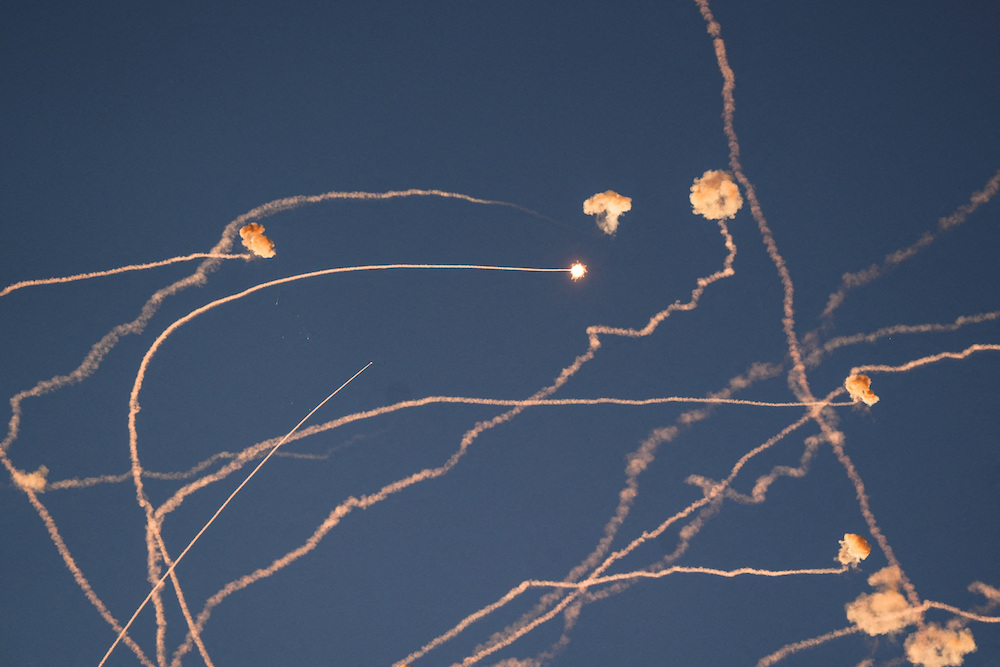
Interceptions of rockets launched from Lebanon to Israel over the border, amid ongoing cross-border hostilities between Hezbollah and Israeli forces. (Reuters)
“When it comes to Biden, he talked about his plan of a ceasefire, of the release of the hostages, but also his plan wasn’t clear in his statements,” said Abtar.
“So, in reality, we heard two very vague statements from the candidates, from the current president and the ex-president, without having anything substantial, any policy.”
Referring to the Biden administration’s Gaza peace plan, first presented in May but yet to be accepted by Israel and Hamas, Abtar said that little clue was given about potential next steps.
“Although Biden presented this plan, and this proposal, it seems that it has reached a dead end,” she said. “The answers were not clear in that regard.”
Highlighting his peace plan during the debate, Biden said “the first stage is to treat the hostages for a ceasefire” and the “second phase is a ceasefire with additional conditions.”
He went on to say that he was supplying Israel with everything they needed, minus a 2000-pound bomb, because “they don’t work very well in populated areas. They kill a lot of innocent people. We are providing Israel with all the weapons they need and when they need them.”
Joyce Karam, a veteran journalist and senior news editor at Al-Monitor, was likewise struck by the lackluster performance from Biden.
“This was a very bad debate for President Joe Biden,” she told Arab News. “I can tell you as someone who had interviewed Biden when he was vice president and covered him in previous races, and had seen him in multiple debates, this was definitely his worst.
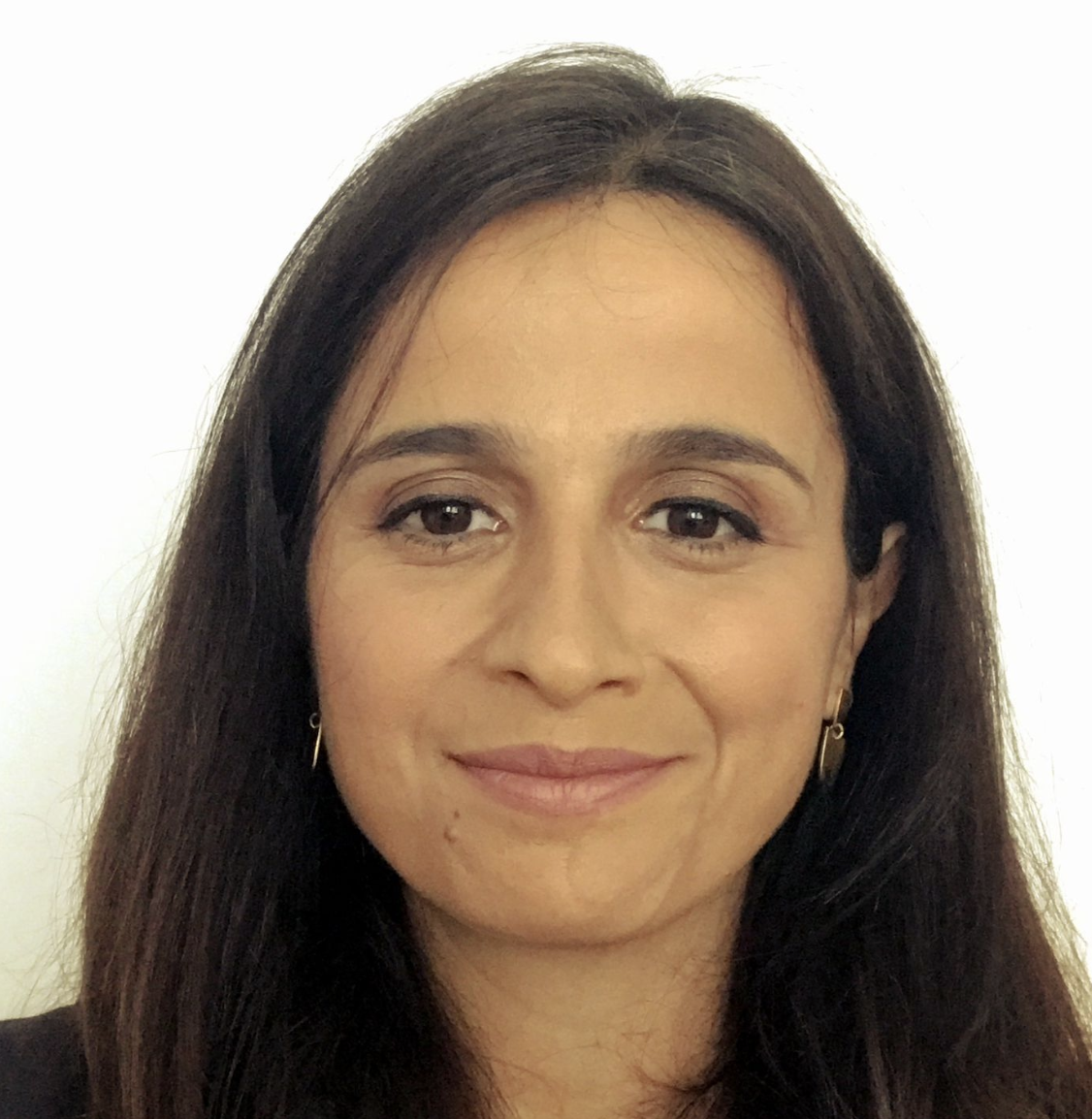
Joyce Karam. (Supplied)
“The decline in his performance was just obvious — the voice, the style, the delivery. The American president, he looked frail and he just looked weak.”
Karam believes that Trump came out on top in part due to the weakness of Biden’s performance.
“There is a consensus among observers that Donald Trump won this debate, and won it handily, not because he offered popular policies or visionary ideas, but because Biden was incoherent,” she said.
“You just couldn’t understand sometimes what he (Biden) was saying, and he just couldn’t finish a sentence.”
The question among many commentators now is whether the Democratic Party will rally behind Biden’s candidacy or seek a last-minute change to their nominee to run for the presidency in November.
“I’m not sure that these two men (Biden and Trump) will debate again, or that Biden will ultimately be the Democratic nominee,” said Karam.
“The chatter has already started on Biden perhaps forgoing a second term and announcing that he has changed his mind and will not run for reelection. And then we may see an open Democratic convention in Chicago.”
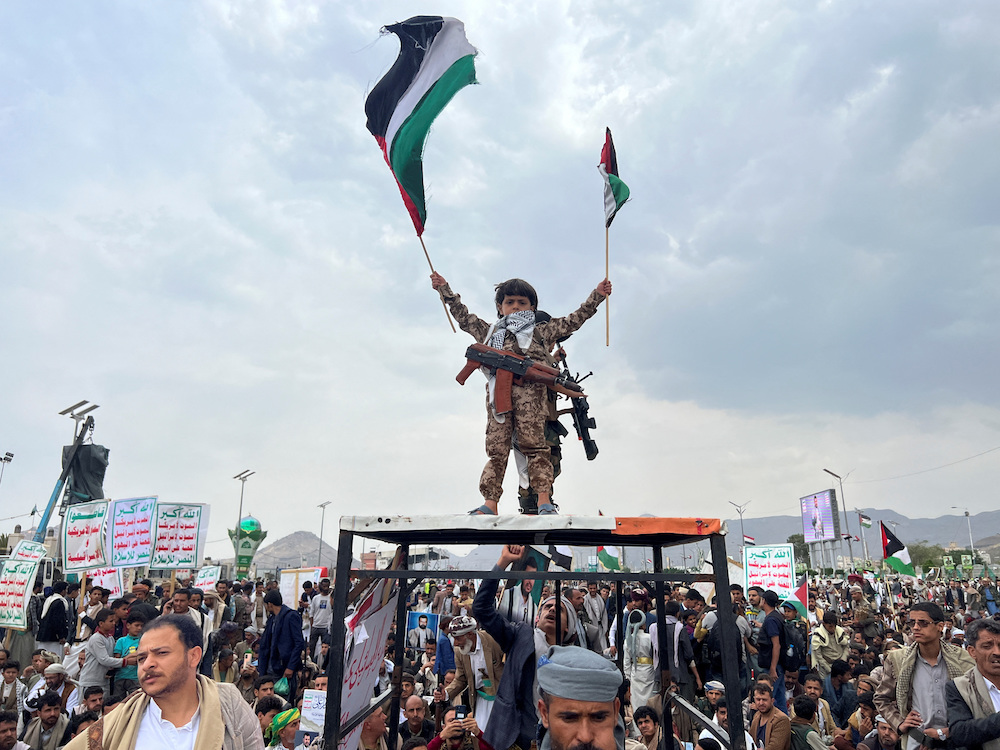
A child holds up Palestinian flags as protesters, mainly Houthi supporters, take part in a demonstration in Sanaa, Yemen in solidarity with Palestinians in the Gaza Strip, amid the ongoing conflict between Israel and Hamas, June 28, 2024. (Reuters)
Returning to the theme of Thursday night’s clash, Karam said that the 90-minute debate lacked “much substance” on many issues, including the Middle East and the conflict in Gaza.
“Most of the discussion was around the economy, social issues, healthcare, Medicare, the deficit, which is typical on these occasions,” she said. “What we saw, however, especially from Trump, was plenty of cliche statements, and from both candidates we didn’t see much, actually, of substance, when it came to the Middle East.
In one of the more memorable moments of the debate, Trump said Biden “has become like a Palestinian. But they don’t like him because he is a very bad Palestinian. He is a weak one.”
Reacting to the comment, Karam said: “Trump accusing Biden of being a ‘bad Palestinian’ is just another level, and Biden did not exactly have convincing responses when he was asked about ending the war in Gaza and supporting Israel. It was the same talking points from the candidates that we heard in the last few months on the campaign trail.”
Karam said there was “little actual debate on the big issues around US foreign policy” and on issues like how Trump would achieve his stated aim of ending the war in Ukraine. Instead there was a lot of “lofty talk, a lot of cliche statements, very little substance.”
There was also “little on the global power competition between the US and China. There was almost nothing on the future of the US presence and influence in the Middle East, and absolutely nothing that I heard on Iran’s nuclear program.”
No matter who ultimately secures the keys to the White House in November, Maksad of the Middle East Institute believes some kind of normalization deal between Israel and Saudi Arabia will be a priority for any incoming administration.
“There are few things that enjoy bipartisan consensus in America these days, but for the importance of encouraging greater regional integration in the Middle East, with potential Saudi-Israeli normalization as its centerpiece,” he said.
